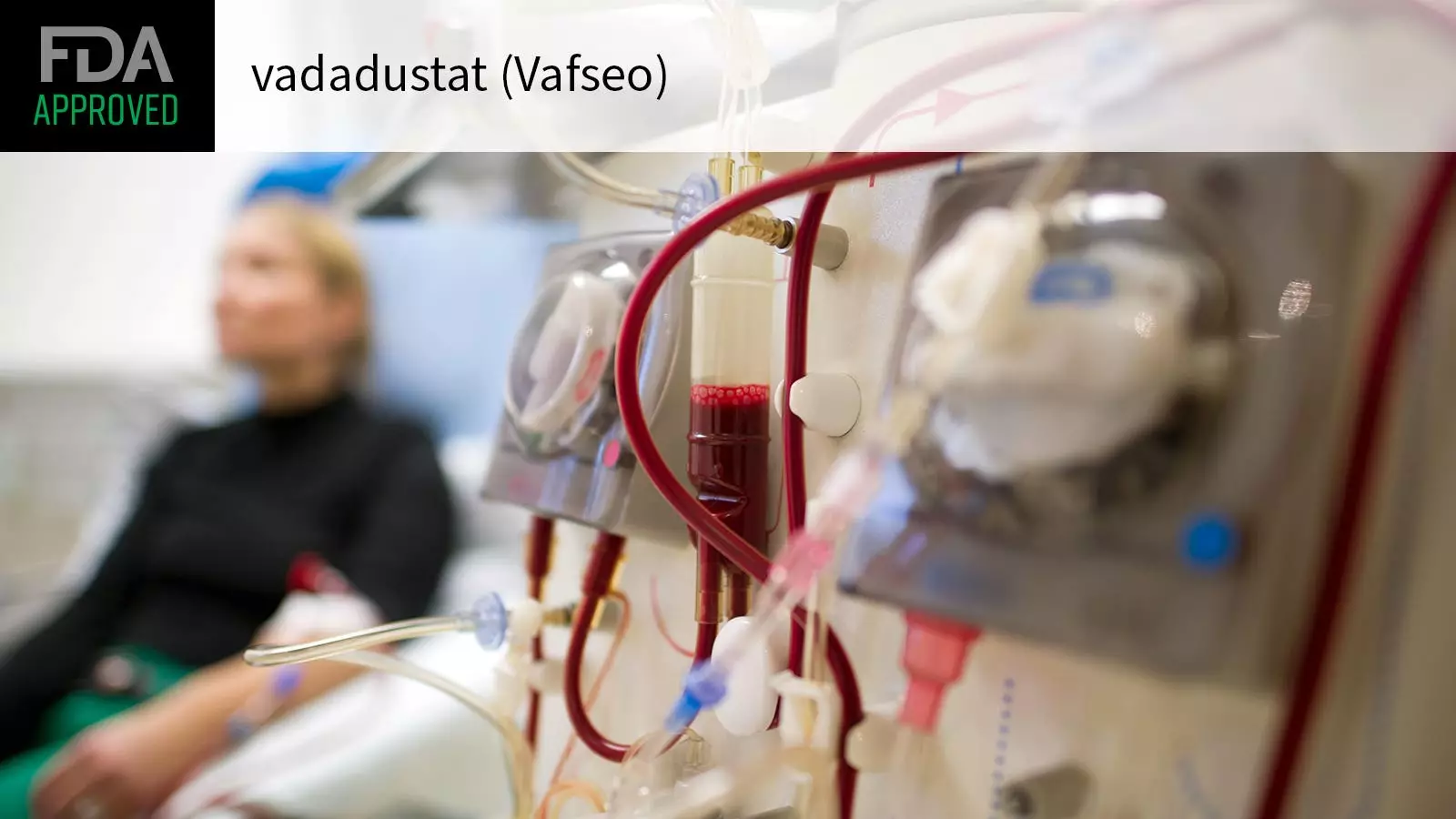The FDA has approved vadadustat (Vafseo) for chronic kidney disease (CKD)-related anemia in adults who have been on dialysis for at least 3 months. This announcement was made by Akebia Therapeutics, the developer of the drug. The co-chair of the drug’s clinical development program, Glenn Chertow, MD, MPH, of Stanford University, emphasized the need for additional therapeutic options for patients on maintenance dialysis to effectively increase and maintain hemoglobin concentrations within guideline-recommended target ranges. This approval marks Akebia’s second attempt, following an initial rejection by the FDA for a broader indication due to unfavorable benefit-risk assessment.
Vadadustat is a once-daily, oral hypoxia-inducible factor prolyl hydroxylase (HIF-PH) inhibitor that works by activating the physiologic response to hypoxia to stimulate the endogenous production of erythropoietin to manage anemia. This drug is the second in its class to gain FDA approval for this indication, with the first oral HIF-PH agent being daprodustat (Jesduvroq). Prior to these approvals, the HIF-PH inhibitor roxadustat was rejected by the FDA for CKD-related anemia due to concerns related to thrombotic risk.
The approval of vadadustat was supported by data from the INNO2VATE program, where it was found to be noninferior to darbepoetin alfa in maintaining hemoglobin levels. The study showed mean differences in the change in hemoglobin concentrations between vadadustat and darbepoetin alfa for both incident dialysis-dependent CKD patients and prevalent dialysis-dependent CKD patients.
Some of the most common adverse reactions that occurred in at least 10% of vadadustat-treated patients were hypertension and diarrhea. The drug’s label will carry a boxed warning about an increased risk of death, myocardial infarction, stroke, venous thromboembolism, and thrombosis of vascular access. Other warnings include the risk for hepatotoxicity, hypertension, seizures, gastrointestinal erosion, and malignancy. It is important to note that vadadustat should not be used in patients with uncontrolled hypertension or as a substitute for red blood cell transfusions in patients who require immediate correction of anemia.
The FDA’s approval of vadadustat provides a new therapeutic option for adults with CKD-related anemia who have been on dialysis for at least 3 months. The drug’s mechanism of action and clinical studies have demonstrated its efficacy in maintaining hemoglobin levels in this patient population. However, it is crucial for healthcare providers to be aware of the potential adverse reactions and warnings associated with vadadustat to ensure safe and effective use in clinical practice.



Leave a Reply